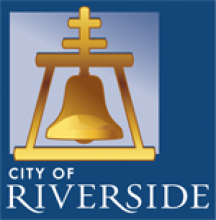Riverside: Municipal Wi-Fi is Alive in California
Riverside, California, an innovative city of 300,000 in the eastern part of Los Angeles has been a broadband pioneer even though it sits in the shadow of tech centers like nearby Santa Barbara. Riverside’s accomplishment as a city catching up with the information age was evident when it was selected as one of the top 7 Intelligent Communities Award in 2011 by New York-based Intelligent Community Forum.
“It’s an honor to be selected as one of the top 7 cities in the world. It comes down to a couple factors, what communities are doing with broadband, but... includes digital inclusion, innovation, knowledge workforce (of folks within your community) and marketing advocacy... We rank very high in all those categories.” - City CIO Steve Reneker [Gigabit Nation Radio]
The cornerstone the city’s SmartRiverside initiative is a free public wireless network which covers 78% of the city’s 86 square miles. Established in 2007 by AT&T (which also offers DSL services in Riverside), the maximum speed of the network is 768kbps, which at just under 1Mbps is decent enough to surf the web and check emails. However the road to providing free Internet access and bridging the digital divide wasn’t so easy for Riverside.
The City issued a RFP in 2006 for a provider to deploy a citywide Wi-Fi network, with the goal of making the Internet accessible to users who can’t afford higher cost plans. The City met with respondents and a speed of 512kbps or about half a megabit was initially quoted as an entry-level speed that would complement existing services rather than compete against them. The contract was awarded to AT&T who hired MetroFi to build the network and charge the city a service cost of about $500,000 a year. MetroFi went bankrupt after completing only 25 square miles and Nokia Siemens took over but only completed up to the present level of coverage.
In 2007, the wifi network launched and began bridging the digital divide. Through the City’s digital inclusion efforts, not only were modest-income families able to obtain low cost or free PCs but also have means to use them with an Internet connection.



